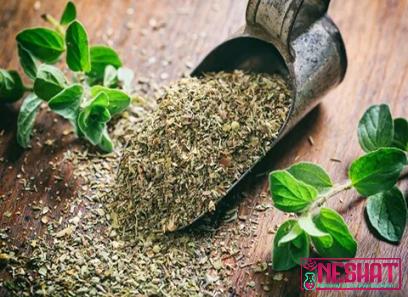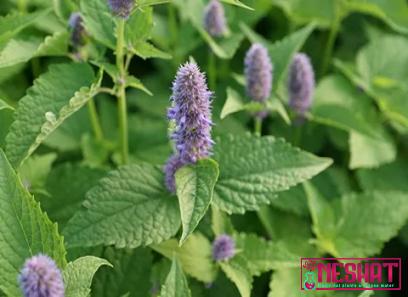Sweet basil, scientifically known as Ocimum basilicum, is a versatile herb used in various culinary and medicinal applications. With its distinct aroma, flavor profile, and numerous health benefits, sweet basil presents a compelling opportunity for entrepreneurs looking to venture into the herb business. In this article, we explore the potential of sweet basil as a profitable business venture, discussing its market demand, cultivation considerations, value-added products, and marketing strategies.

.
 Market Demand: The global culinary herb market has witnessed exponential growth in recent years, with a rising focus on natural and organic alternatives. Sweet basil, a staple in many cuisines worldwide, has become a sought-after ingredient among health-conscious consumers. Its rich source of antioxidants, vitamins, and minerals has bolstered its popularity as a functional food. Entrepreneurs considering a sweet basil venture can tap into various market channels such as grocery stores, farmers markets, restaurants, and online platforms to meet the increasing demand. Cultivation Considerations: Sweet basil can be cultivated outdoors in temperate regions or in greenhouses, allowing year-round production in favorable climates.
Market Demand: The global culinary herb market has witnessed exponential growth in recent years, with a rising focus on natural and organic alternatives. Sweet basil, a staple in many cuisines worldwide, has become a sought-after ingredient among health-conscious consumers. Its rich source of antioxidants, vitamins, and minerals has bolstered its popularity as a functional food. Entrepreneurs considering a sweet basil venture can tap into various market channels such as grocery stores, farmers markets, restaurants, and online platforms to meet the increasing demand. Cultivation Considerations: Sweet basil can be cultivated outdoors in temperate regions or in greenhouses, allowing year-round production in favorable climates.
..
 Attention to soil quality, sunlight exposure, watering regimes, and pest control is essential for ensuring optimal growth. The herb requires well-drained soil with a pH between 6 and 7.5, ample sunlight (minimum 6 hours per day), and regular watering. Organic and sustainable cultivation practices are increasingly preferred by consumers, making it crucial for entrepreneurs to explore eco-friendly growing techniques to align with market trends. Value-added Products: To maximize business opportunities and cater to diverse customer preferences, entrepreneurs can explore value-added sweet basil products. These may include dried basil leaves, basil-infused oils, herbal teas, culinary spice blends, pesto sauces, and even beauty and personal care items such as soaps and lotions infused with sweet basil extracts.
Attention to soil quality, sunlight exposure, watering regimes, and pest control is essential for ensuring optimal growth. The herb requires well-drained soil with a pH between 6 and 7.5, ample sunlight (minimum 6 hours per day), and regular watering. Organic and sustainable cultivation practices are increasingly preferred by consumers, making it crucial for entrepreneurs to explore eco-friendly growing techniques to align with market trends. Value-added Products: To maximize business opportunities and cater to diverse customer preferences, entrepreneurs can explore value-added sweet basil products. These may include dried basil leaves, basil-infused oils, herbal teas, culinary spice blends, pesto sauces, and even beauty and personal care items such as soaps and lotions infused with sweet basil extracts.
…
 Developing a range of products allows for wider market reach and potential collaborations with local artisans and retailers. Marketing Strategies: Establishing a strong brand presence is crucial for success in the sweet basil business. Entrepreneurs can leverage the power of digital marketing by creating an engaging website, utilizing social media platforms to showcase recipes, sharing educational content on the benefits of sweet basil, and collaborating with influencers or food bloggers to promote their products. Partnering with local restaurants and cafes can also boost brand visibility and introduce sweet basil to a wider audience. Conclusion: The lucrative business potential of sweet basil is evident as its demand continues to grow. With its culinary versatility, rich nutritional profile, and increasing consumer focus on healthy, natural ingredients, entrepreneurs can tap into this market by providing high-quality sweet basil products. By considering cultivation best practices, diversifying product offerings, and implementing effective marketing strategies, aspiring business owners can ride the wave of success in the booming sweet basil industry.
Developing a range of products allows for wider market reach and potential collaborations with local artisans and retailers. Marketing Strategies: Establishing a strong brand presence is crucial for success in the sweet basil business. Entrepreneurs can leverage the power of digital marketing by creating an engaging website, utilizing social media platforms to showcase recipes, sharing educational content on the benefits of sweet basil, and collaborating with influencers or food bloggers to promote their products. Partnering with local restaurants and cafes can also boost brand visibility and introduce sweet basil to a wider audience. Conclusion: The lucrative business potential of sweet basil is evident as its demand continues to grow. With its culinary versatility, rich nutritional profile, and increasing consumer focus on healthy, natural ingredients, entrepreneurs can tap into this market by providing high-quality sweet basil products. By considering cultivation best practices, diversifying product offerings, and implementing effective marketing strategies, aspiring business owners can ride the wave of success in the booming sweet basil industry.










Your comment submitted.